News
PMP 2020 Revised Payment Bands and Rates
Following a review of the Programme, informed partly by farmer feedback, we have revised our payment structure for 2020.
The main changes include:
1. Payment bands have been consolidated into three new bands (Band A: 0-30ha, Band B: 30-70ha, and Band C: >70ha). The effect of this change is that the highest payment rates will be available to the first 30ha of land rather than 15ha, as was the case on 2019.
2. Minor change to the payment rates across each band. Then most significant change is the higher payments available for habitat quality scores of 7.
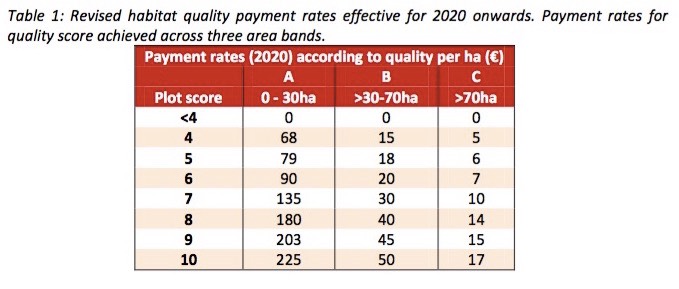
3. The potential floodplain payment is now available to all farmers with land along the main freshwater pearl mussel rivers as a recognition of the importance of these lands in sustaining high water quality within the rivers. The payment is related to habitat quality (higher quality = higher payment) and the contribution the lands make towards supporting freshwater pearl mussel.
The effect of making the changes will increase the annual results-based payment for most participant farmers in 2020 onwards. The new payment rates will better reward farmers for providing environmental benefits and will create a greater incentive for farmers to improve the environmental quality of their farms.
You can see full details in the Pearl Mussel Programme - Terms & Conditions Update (June 2020)
#pearlmusselproject #musselrivers #EIPagri #RuralNetwork @agriculture_ie
Young freshwater pearl mussel photos tell a sad story
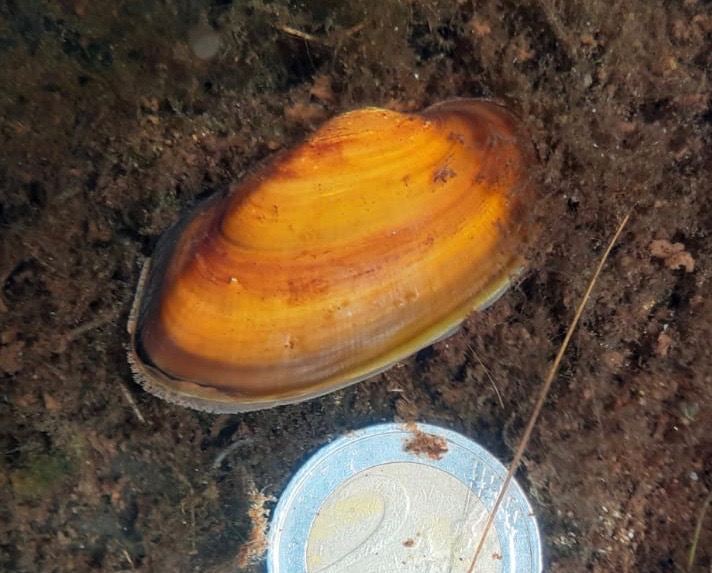
On saturday morning we posted some images of young freshwater pearl mussel taken by Martin Gibbons one of PMP programme farmers in the Owenriff, Co. Galway last week.
Although we are really delighted to see juvenile mussels in the river, it turns out SEEING young mussels on surface of river bed is NOT a good thing, as Dr Evelyn Moorkens, Ireland’s foremost freshwater pearl mussel expert explains:
“A combination of low flows and poor river bed quality lead to a decrease in oxygen in the river bed where young mussels should be buried up to 10cm deep. In low oxygen situations mussels move up to the open water in an attempt to get enough oxygen to stay alive, as we see in the photos.
These 8 to 12 year old mussels may be lucky enough to survive, but their younger relatives, buried in the river bed are not likely to survive these conditions. It just takes one day of these poor conditions in 2000 to kill the younger age groups of 1mm to 30mm juvenile pearl mussels.
It’s a heartbreaking sight in one of our best rivers to lose these precious young mussels from the safety of the river bed.
These photos show how important the work of the Pearl Mussel Project is in our “Top 8” catchments. The landowners and farmers that are part of the pearl mussel project are working hard to make sure the flow and condition of the best rivers improve so that hopefully we can get more juvenile recruitment and future juveniles can live and thrive where they belong - buried in the river bed”.
#pearlmusselproject #musselrivers #EIPagri #RuralNetwork @agriculture_ie
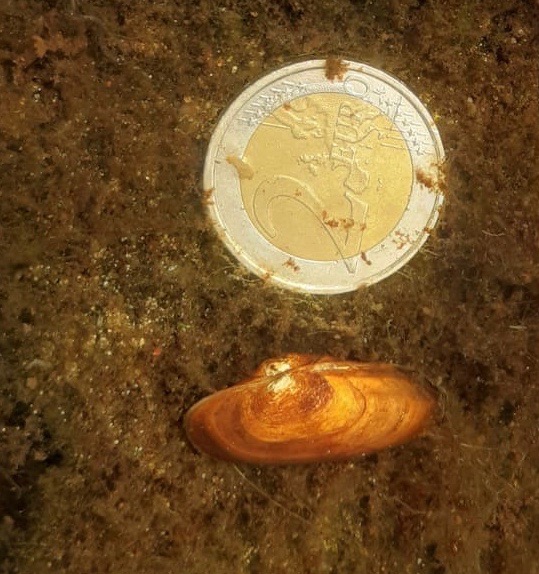
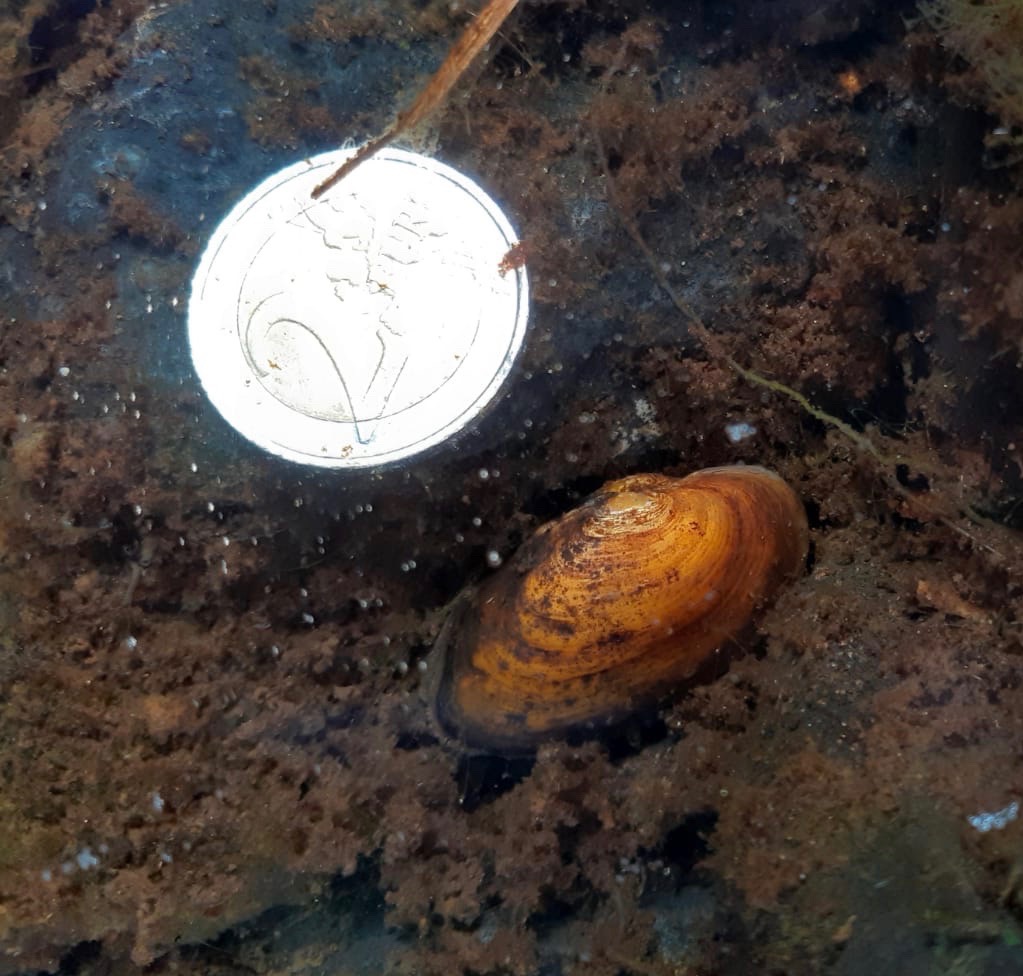
2020 Pearl Mussel Programme contract offers are in the post!
Following a review of the 2020 expression of interest forms received by PMP, 125 new contract offers have been sent to farmers over the last week. The offers include a farm plan which shows farm details and outlines potential payments. As it is a results based programme, the actual payment to farmers will depend on the environmental quality of their farms.
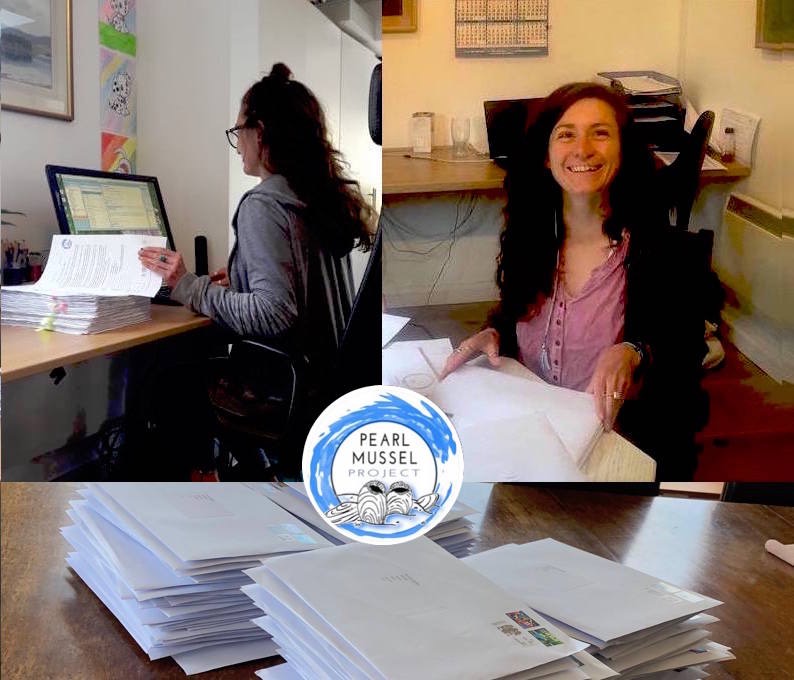
PMP now has 470 farmers in the programme, covering some 32,000ha of land, equal to approximately 80% of the land area within the eight priority freshwater pearl mussel catchments.
We urge farmers to accept offers as soon as possible by returning completed forms so that advisors can start to assess the results.
#pearlmusselproject #musselrivers #EIPagri #RuralNetwork @agriculture_ie
Postgraduate research investigates co-benefits of the PMP programme scoring system
Freshwater pearl mussel populations in Ireland are found in streams, rivers and lakes where there is very high-quality water. However, across Europe, this mussel species has been in long-term decline, mainly due to the deterioration in water quality arising from increased sediment and nutrient loading. Ireland holds nearly 45% of the remaining European population and therefore we have a particular responsibility to work towards protecting and enhancing the remaining populations and to promote appropriate land management within the best mussel catchments.
The Pearl Mussel Project EIP, is an agri-environment scheme where payments to farmers in eight priority mussel catchments are linked to the quality of farmland for protecting and enhancing the mussel populations. The scoring system is based on the condition of habitat (peatlands, grasslands and woodland/scrub) for retaining water and nutrients, which is vital to ensure the long-term sustainability of the existing pearl mussel populations.
Farmland which is in good condition provides clean water that supports the freshwater pearl mussel. It is also likely to have co-benefits for other aspects of biodiversity – bringing about greater value for the project for the wider environment.
A research collaboration between the Pearl Mussel Project and Institute of Technology Sligo (IT Sligo) and Galway Mayo Institute of Technology (GMIT) will work to explore this co-benefit for the environment. Poppy is supervised by Dr. Dolores Byrne and Professor Frances Lucy, IT Sligo and Dr. James Moran (GMIT), with valuable input and direction of the PMP Team. James, Dolores and Dr. Derek McLoughlin of the PMP, worked on the RBAPS project (www.rbaps.eu) to develop and trial a pilot results-based approaches in Ireland based on the successful Burren Programme model and some of this work underpins the PMP scoring system.
Poppy Overy’s postgraduate research at IT Sligo, will focus her first year’s research on the co-benefits of the PMP scoring system for vegetation and ground beetles.
Wet ground is important for attenuating water flow nutrients in the pearl mussel catchments, and this type of habitat would be expected to support certain groupings of plants and beetles. The types, abundance and groupings of plants and ground beetles can be indicators of how other aspects of biodiversity are performing, i.e. they act as surrogates of wider biodiversity. Having information on these aspects of biodiversity specifically for land enrolled in the Pearl Mussel programme means that the scoring system can be linked to other ecological goods supported by having land in optimal condition for high water quality. This invaluable information will assist the PMP and farmers enrolled in the programme in understanding how their farm management supports different elements of biodiversity.
Wet ground can support a range of wetland plants such as the Burgandy marsh cinquefoil which are adapted to live in lower nutrient and wet conditions. Beetles, like the large carabid species in the centre of the photos, can also indicate wetter or drier ground conditions. Grasslands and peatlands in good hydrological condition for the freshwater pearl mussel will also provide opportunities for other biodiversity such as pollinating insects.

Poppy will also investigate the restoration of two peatland sites within pearl mussel catchments. The restoration work is supported by the PMP through the Supporting Actions funding stream which encourages the completion of voluntary measures to improve habitat quality.
This work involves the rewetting of peat using drain blocking and sometimes adjustment of grazing levels, which we believe will cause positive changes to the habitat. The hydrology of peatland has a vital role in the entire ecosystem, with a direct influence on the integrity of the peat and the biodiversity composition. Poppy will monitor the changes in vegetation and ground beetles as indicators of how the rewetting process is progressing. On one former cutover peatland, Poppy’s work will feed into and be complemented by the Carbon Connects project, which is researching the changes in greenhouse house gas emissions as cutover peatland is rewetted.
As Poppy’s study progresses, she will look at expanding her research to investigate other elements of the Pearl Mussel Project scoring system and its benefits for biodiversity.
For further project information, contact: Dolores Byrne by email at byrne.dolores@itsligo.ie
#pearlmusselproject #musselrivers #EIPAgri #RuralNetwork #agriculture_ie
Rhododendron control training video: Pearl Mussel Project
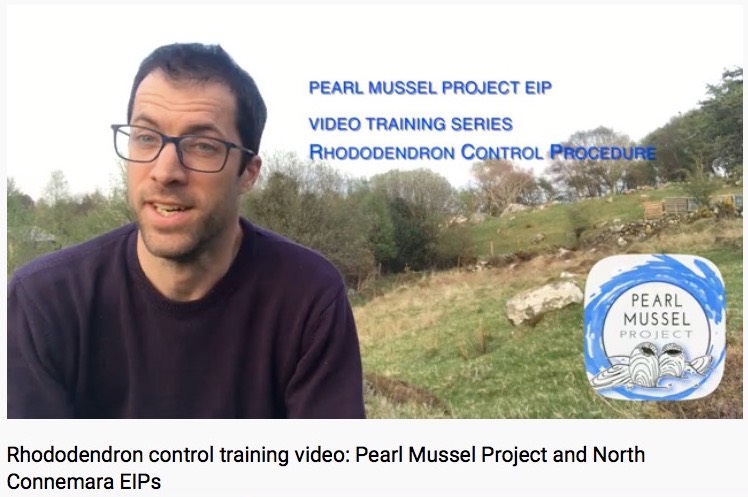
With the on-going difficulties around holding face to face farmer training, the PMP have produced a 20 minute training video to cover issues relating to the clearance and management of Rhododendron on farms, one of the supporting action funded under the programme.
Rhododendron is an alien invasive species that depletes peatland catchments of their ecological value. Where it occurs, this reduces the plot score and payment.
Rhododendron control is a Supporting Action that requires participant farmers to follow the approved method in the video. We ask farmer undertaking this action to note the verification code that will appear on your screen towards the end of the video and send this to the Pearl Mussel Project contact person below, to show you have followed the training. Contact details are also provided in the video.
PMP would like to thank Peter O'Toole of the National Parks and Wildlife Service and Killarney National Park for allowing us to use of video training footage.
You can watch this and other PMP YouTube videos here.
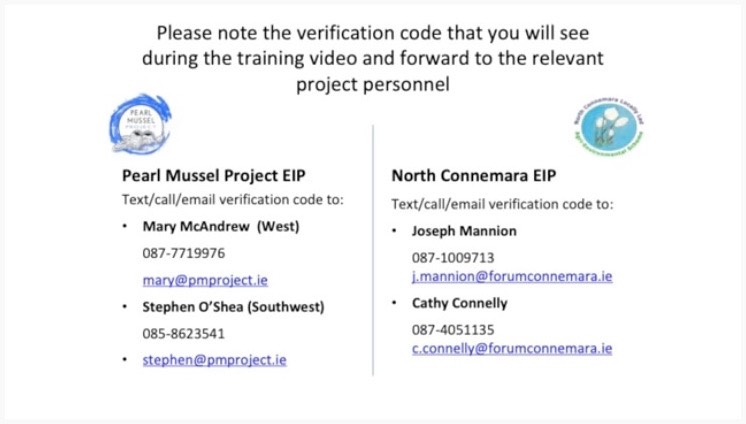
#pearlmusselproject #musselrivers #EIPAgri #RuralNetwork #agriculture_ie
